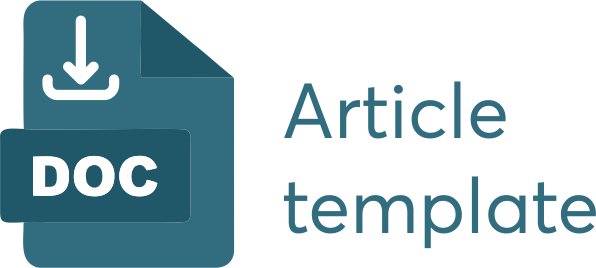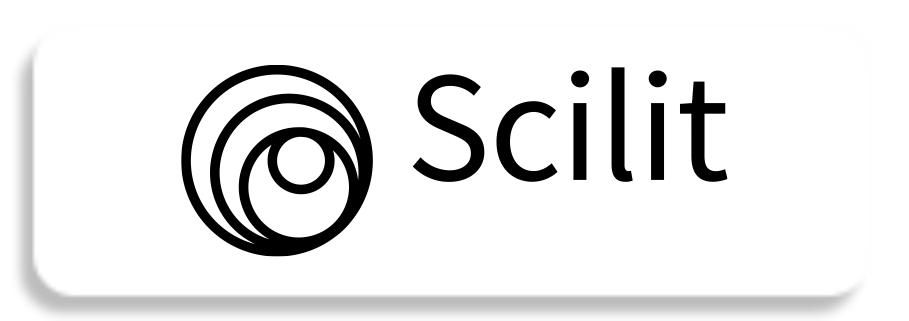Eco-literacy and sustainable citizenship: The role of the school environment in shaping responsible environmental behavior
DOI:
https://doi.org/10.62568/jomes.v1i1.13Keywords:
Eco-literacy, sustainable citizenship, responsible environmental behaviorAbstract
The goal of this project is to apply eco-literacy through sustainable practices in schools that are not part of the Adiwiyata school program. This study combines analytical description techniques with a qualitative methodology. There are 1154 pupils enrolled at SMA Negeri 19 Medan, where this study was carried out. The study conducted at SMA Negeri 19 Medan yielded findings that initially encountered resistance from both students and teachers on the ongoing adoption of eco-literacy in the classroom. However, because of the advantages that the program provided, students and teachers who had initially objected to it began to respond favorably to it in the second year of its implementation. Thus, it can be concluded that ecoliteracy which was implemented through continuous habituation at SMA Negeri 19 Medan was declared successful even though initially this school was not included in the Adiwiyata school.
References
Asshiddiqie, J. (2009). Green Constitution: Nuansa Hijau Undang-Undang Dasar Negara Republik Indonesia Tahun 1945. Rajawali Pers.
Capra, F. (2010). Smart by Nature: Schooling for Sustainability. Journal of Sustainability Education, 122–127. http://www.jsedimensions.org/wordpress/content/trial-author-change_2010_05/print/
Caruso, G., & Miller, S. (2015). Long run effects and intergenerational transmission of natural disasters: A case study on the 1970 Ancash Earthquake. https://doi.org/10.1016/j.jdeveco.2015.07.012
Cas, A. G., Frankenberg, E., Suriastini, W., & Thomas, D. (2014). The Impact of Parental Death on Child Well-being : Evidence From the Indian Ocean Tsunami. Demography, 51(2), 437–457. https://doi.org/10.1007/s13524-014-0279-8
Creswell, J. W. (2014). Research design qualitative, quantitative, and mixed method approaches. SAGE Publication. Inc.
Creswell, J. W. (2018). Research design: Pendekatan kualitatif, kuantitatif, dan campuran (A. Fawaid & R. K. Pancasari (trans.); Cet. 3). Pustaka Pelajar.
Dasrita, Y. (2018). Kesadaran Lingkungan Siswa. Cipta Media Edukasi.
Elmy, M., & Winarso, H. P. (2019). Kepedulian Orang Tua dalam Menanamkan Karakter Peduli Lingkungan ( Studi terhadap Warga di Bantaran Sungai Kuin Kota Banjarmasin). Jurnal Pendidikan Kewarganegaraan, 9(2), 51–57.
Erhabor, N. I., & Don, J. U. (2016). Impact of Environmental Education On the Knowledge and Attitude of Students Towards the Environment. International Journal Of Environmental & Science Education, 11(12), 5367–5375
Felice, Celine Del and Lilian Solheim. 2011. “Youth organisations as learning organisations: exploring special contributions and challenges.” Development in Practice 21(8): 1094-1108.
Gillespie, T. W., Frankenberg, E., Braughton, M., Cooke, A. M., Armenta, T., & Thomas, D. (2009). On-line working paper series assessment of natural hazard damage and reconstruction : A case study from Band Aceh , Indonesia.
Goleman, D. (2010). Ecological inteligence: How knowing the hidden impact of what we buy can change evrything. Gramedia Pustaka Utama.
Hadjichambis, A. C., & Reis, P. (2020). Introduction to the conceptualisation of environmental citizenship for twenty-first-century education. in conceptualizing environmental citizenship for 21st century education (hal. 1–14). Springer, Cham.
Haris, A. (2016). Implementasi CSR (corporate social responsibility) PT. Agung perdana dalam mengurangi dampak kerusakan lingkungan. Journal of Governance and Public Policy, 3(2), 203–225.
Hsu, Sara and Nathan Perry. 2014. Lessons in sustainable development from Malaysia and Indonesia. New York: Palgrave Macmillan
Jiwa, R. A. M., & Esa, N. (2014). Ecological literacy among secondary school students. Conference Paper, June.
Ju, E. J., & Kim, J. G. (2011). Using soil seed banks for ecological education in primary school. Journal of Biological Education, 45(2), 93–101. https://doi.org/10.1080/00219266.2010.546010
Kates, Robert W., Thomas M. Parris, and Anthony A. Leiserowitz. 2005. “What is sustainable development? goals, indicators, values, and practice.” Environment 47(3):8–21.
Kostelnik, M. J., Soderman, A. K., & Phipps, W. A. (2017). Kurikulum pendidikan anak usia dini berbasis perkembangan anak (Developmentally Appropriate Parctices) (5th ed.). Kencana.
Mardiana, S., Berthanila, R., Marthalena, & Rasyid, M. R. (2019). Peningkatan pengetahuan masyarakat mengenai pengelolaan pembuangan dan pemilahan sampah rumah tangga di kelurahan kaligandu kota serang. Jurnal Pengabdian Masyarakat Bantenese, 1(2), 79–88.
McBride, B. B., Brewer, C. A., Berkowitz, A. R., & Borrie, W. T. (2013). Environmental literacy, ecological literacy, ecoliteracy: What do we mean and how did we get here? Ecosphere, 4(5). https://doi.org/10.1890/ES13-00075.1
Muthukrishnan, R. (2019). Using picture books to enhance ecoliteracy of first-grade students. The International Journal of Early Childhood Environmental Education, 6(2), 19.
Nadiroh, N., Hasanah, U., & Zulfa, V. (2019). Behavioral geography: An ecoliteracy perspective and critical thinking skills in men and women. Indonesian Journal of Geography, 51(2), 115–122. https://doi.org/10.22146/ijg.36784
Pitman, S. D., & Daniels, C. B. (2016). Quantifying ecological literacy in an adult western community: The development and application of a new assessment tool and community standard. PLoS ONE, 11(3),1–18. https://doi.org/10.1371/journal.pone.015064
Purwati, D. (2017). Pendidikan karakter peduli lingkungan dan implementasinya. JDWIJACENDKIA urnal Riset Pedagogik, 1(2), 14–20.
Saribas, D., Teksoz, G., & Ertepinar, H. (2014). The relationship between environmental literacy and self-efficacy beliefs toward environmental education. Procedia - Social and Behavioral Sciences, 116(June 2015), 3664–3668. https://doi.org/10.1016/j.sbspro.2014.01.820
Siagian, N., Ridayani, Andrias, Kamsinah, Maryanti, E., Fatmawati, E., ... & Fajri, I. (2023). The effect of environmental citizenship and spiritual norms as mediators on students’ environmental behaviour. International Journal of Adolescence and Youth, 28(1), 2231511.
Sugiyono. (2009). Memahami penelitian kualitatif. Alfabeta.
Sugiyono. (2017). Metode penelitian kualitatif. Alfabeta.
Szerszynski, B. (2006). Local landscapes and global belonging: toward a situated citizenship of the environment. Environmental citizenship.
Tjokrowinoto, Moeljarto. 2012. Pembangunan dilema dan tantangan. Yogyakarta: Pustaka Pelajar
Wang, Y., Liang, J., Yang, J., Ma, X., Li, X., & Wu, J. (2019). Analysis of the environmental behavior of farmers for non-point source pollution control and management : An integration of the theory of planned behavior and the protection motivation theory. Journal of Environmental Management, 237(October2018), 15–23. https://doi.org/10.1016/j.jenvman.2019.02.070
World Commission on Environment and Development. 1987. Our Common Future. Oxford: Oxford University Press
Wulandari, A. I. (2019). Pengembangan Media Video Kerusakan Lingkungan Untuk Membentuk Karakter Siswa Peduli Lingkungan Di Mts Negeri 6 Boyolali.
Yusuf, R., & Fajri, I. (2022). Differences in behavior, engagement and environmental knowledge on waste management for science and social students through the campus program. Heliyon, 8(2).
Yusuf, R., Maimun, S., Fajri, I., & Saputra, J. (2020). A comparison of student environmental literacy: Public and Islamic schools in Banda Aceh, Indonesia. International Journal of Innovation, Creativity and Change, 12(9), 222-239.
Yusuf, R., Sanusi, Razali, Maimun, & Putra, I. (2020). The efforts to improve culture literation and student citizenship through ICT based (LBK) media in Pancasila and citizenship education. Universal Journal of Educational Research, 8(4), 1513–1519. https://doi.org/10.13189/ujer.2020.080444
Yusuf, R., Sanusi., Maimun., Fajri, I., Putra, I. (2020). Hubungan antara kewarganegaraan lingkungan terhadap perilaku lingkungan siswa di sekolah adiwiyata. Junal Pendidikan Kewarganegaraan, 10(1), 1-15.
Yusuf, R., Yunus, M., Maimun, M., & Fajri, I. (2022). Environmental education: A correlational study among environmental literacy, disaster knowledge, environmental sensitivity, and clean-living behavior of post tsunami disaster in Aceh communities, Indonesia. Polish Journal of Environmental Studies, 31(1).
Downloads
Submitted
Accepted
Published
How to Cite
Issue
Section
License
Copyright (c) 2023 Aris Suhendar, Ryan Taufika, Rachmatsyah Rachmatsyah, Rusli Yusuf, Iwan Fajri, Mohd Zailani Mohd Yusoff, Rabiatul Adawiah

This work is licensed under a Creative Commons Attribution 4.0 International License.




















